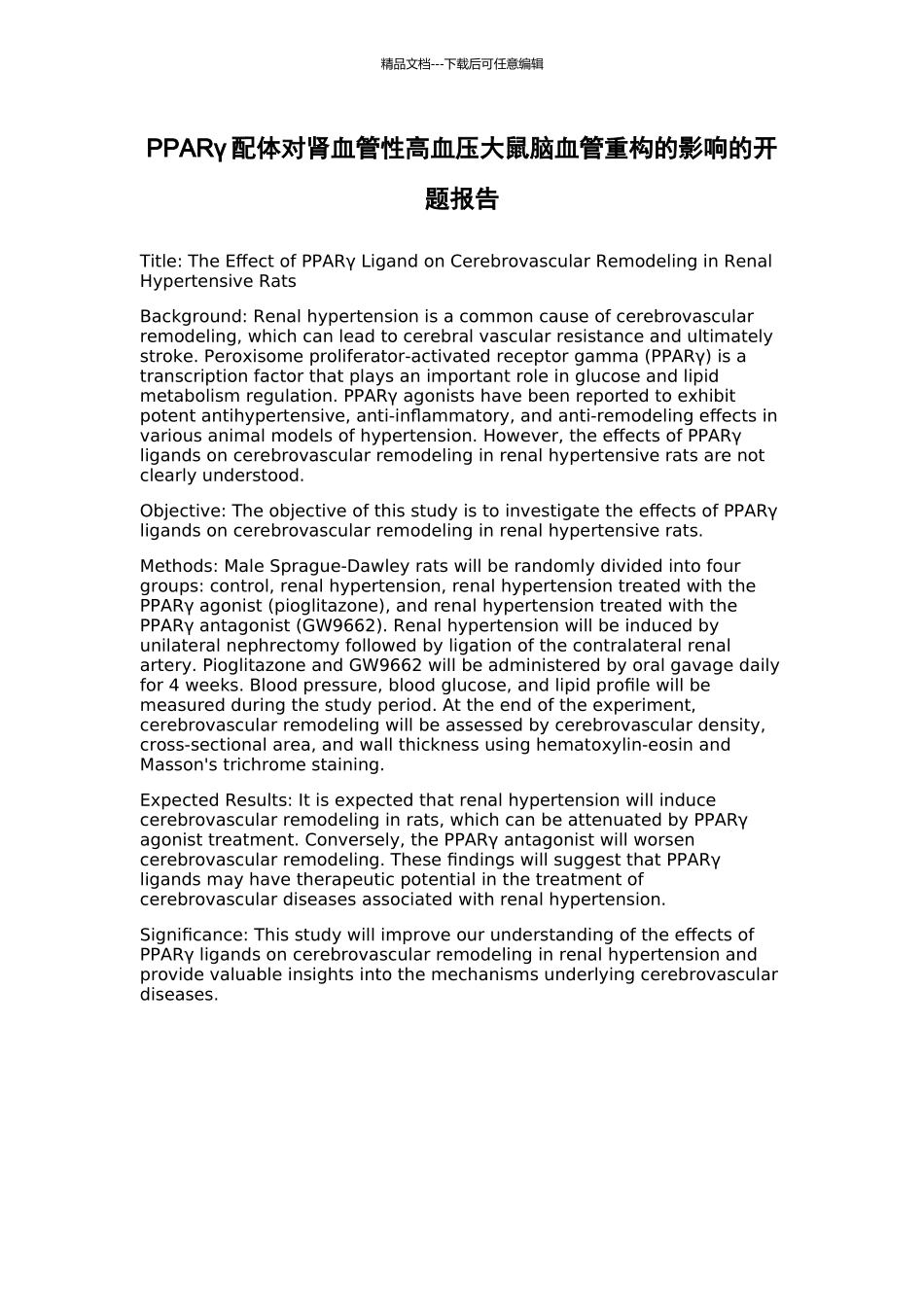精品文档---下载后可任意编辑PPARγ 配体对肾血管性高血压大鼠脑血管重构的影响的开题报告Title: The Effect of PPARγ Ligand on Cerebrovascular Remodeling in Renal Hypertensive RatsBackground: Renal hypertension is a common cause of cerebrovascular remodeling, which can lead to cerebral vascular resistance and ultimately stroke. Peroxisome proliferator-activated receptor gamma (PPARγ) is a transcription factor that plays an important role in glucose and lipid metabolism regulation. PPARγ agonists have been reported to exhibit potent antihypertensive, anti-inflammatory, and anti-remodeling effects in various animal models of hypertension. However, the effects of PPARγ ligands on cerebrovascular remodeling in renal hypertensive rats are not clearly understood.Objective: The objective of this study is to investigate the effects of PPARγ ligands on cerebrovascular remodeling in renal hypertensive rats.Methods: Male Sprague-Dawley rats will be randomly divided into four groups: control, renal hypertension, renal hypertension treated with the PPARγ agonist (pioglitazone), and renal hypertension treated with the PPARγ antagonist (GW9662). Renal hypertension will be induced by unilateral nephrectomy followed by ligation of the contralateral renal artery. Pioglitazone and GW9662 will be administered by oral gavage daily for 4 weeks. Blood pressure, blood glucose, and lipid profile will be measured during the study period. At the end of the experiment, cerebrovascular remodeling will be assessed by cerebrovascular density, cross-sectional area, and wall thickness using hematoxylin-eosin and Masson's trichrome staining.Expected Results: It is expected that renal hypertension will induce cerebrovascular remodeling in rats, which can be attenuated by PPARγ agonist treatment. Conversely, the PPARγ antagonist will worsen cerebrovascular remodeling. These findings will suggest that PPARγ ligands may have therapeutic potential in the treatment of cerebrovascular diseases associated with renal hypertension.Significance: This study will improve our understanding of the effects of PPARγ ligands on cerebrovascular remodeling in renal hypertension and provide valuable insights into the mechanisms underlying cerebrovascular diseases.
